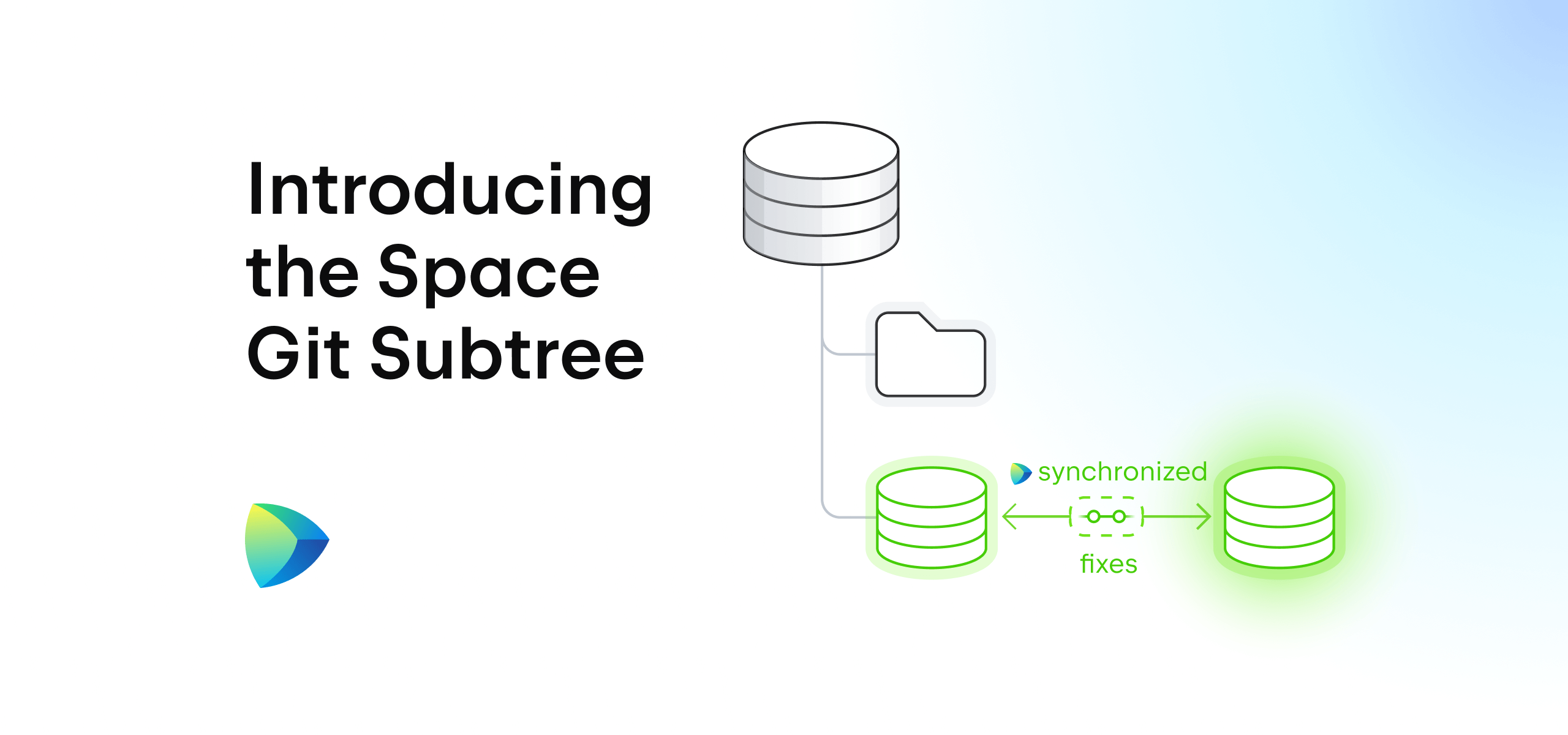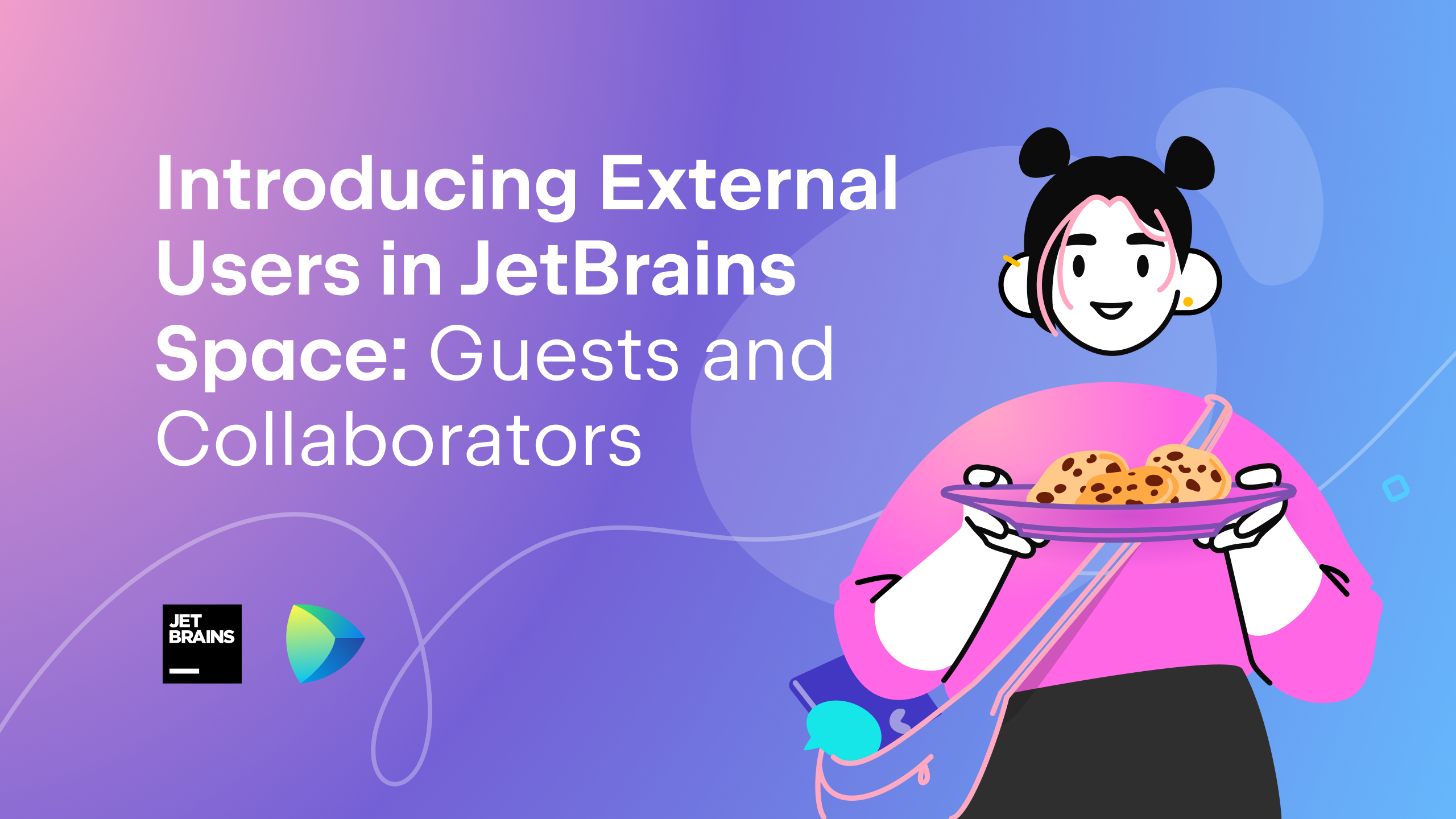Space
The intelligent code collaboration platform
Space and SpaceCode will be discontinued on June 1, 2025. Learn more → →
Space Roadmap for Q3–Q4 2023
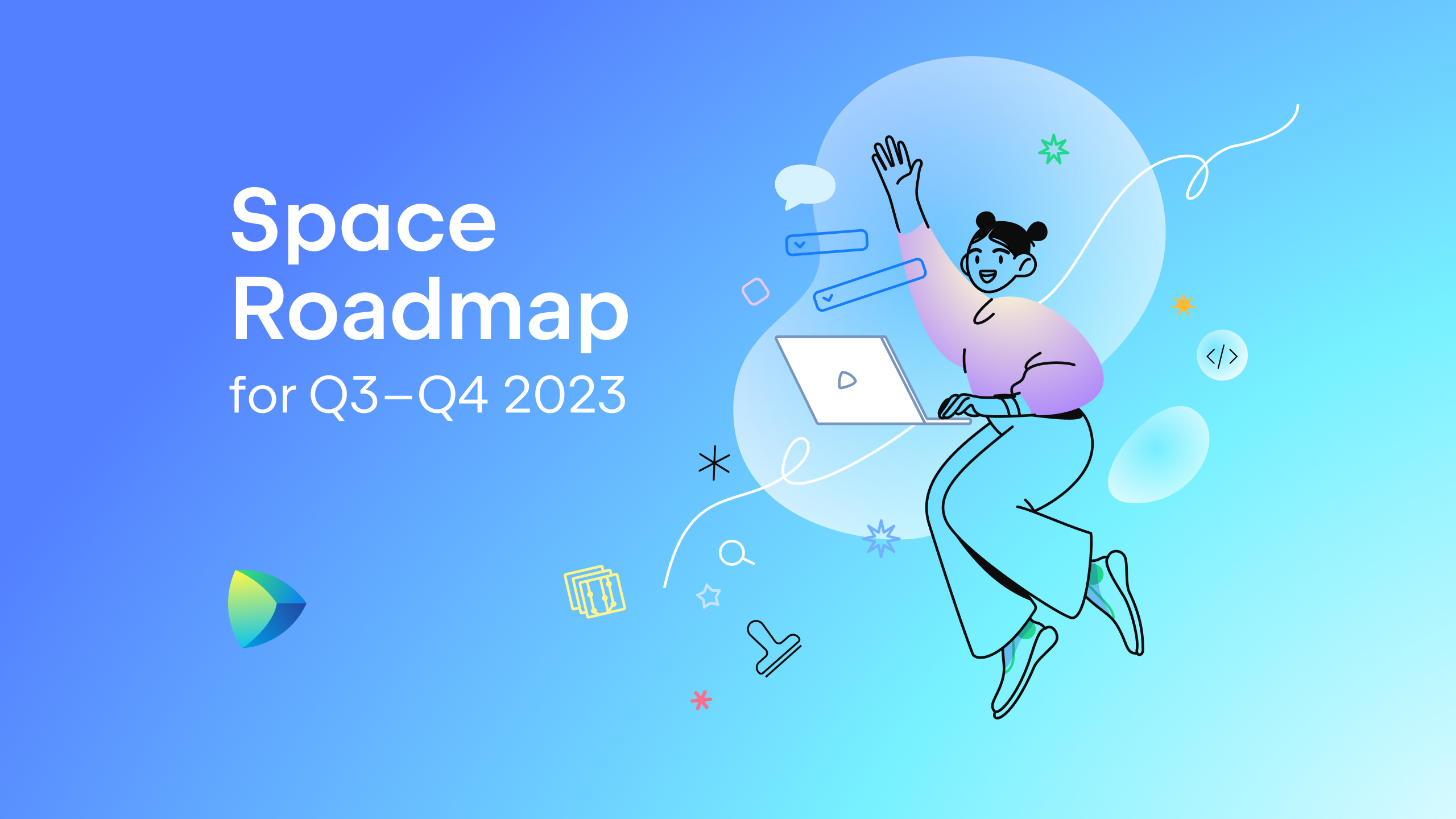
Collaborative software development is at the core of our vision for Space, and we’re committed to moving forward with a focus on the core values that will provide you with the highest quality support for the software development life cycle.
We strive to minimize unnecessary clutter in daily operations so that your team is at peak efficiency where it matters the most. We believe that autonomy is extremely important in freeing up teams and individuals from excessive management. To support transparency, any information shared should be easy to access and understand, keeping everyone aligned and well-informed. And while developers play an undoubtedly crucial role in the software development process, we acknowledge that the involvement of the entire team is essential to achieving optimal productivity.
In order to fully commit to supporting your software development journey, we’ve made the difficult decision to temporarily pause the development of calls and calendar features to better allocate our resources to the core Space modules. Though they are on hold for now, we’ll continue to review our plans and priorities and keep them in our backlog for future iterations.
Read on to see what our team’s focus will be in Q3–Q4 2023.
Explore the Q3–Q4 2023 roadmap
Priority Directions
Space issue flow
The Space issue flow is an issue-centric approach to software development that seamlessly integrates coding into the development pipeline. It eliminates friction and enhances developer productivity by automating tasks like environment setup, branch creation, testing, and deployment. Each change is linked to a specific issue, promoting transparency and making it easy to involve relevant team members at the right moments.
This collaborative approach improves communication, decision-making, and overall efficiency, allowing developers to focus on their creativity while Space takes care of operational tasks.
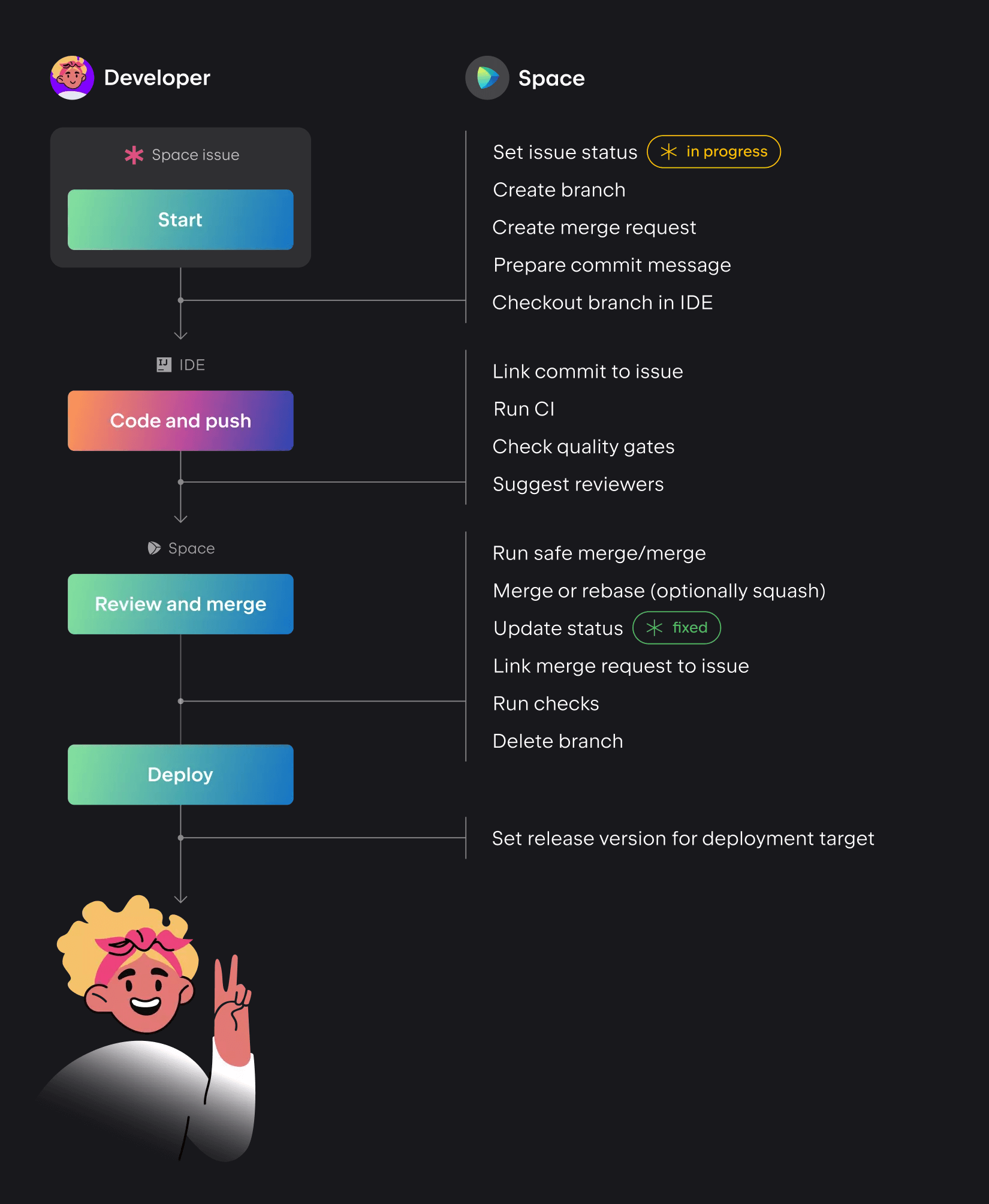
Enhanced integration with JetBrains IDEs
While Space code reviews are already available from your IDE, we’re continuing our work on seamlessly integrating your coding processes into the development pipeline. This includes the Space issue flow described above, as well as enhancements like the ability to jump directly to your IDE from Space to continue reviewing code, open Space repositories in IDEs, or provision IDE credentials.
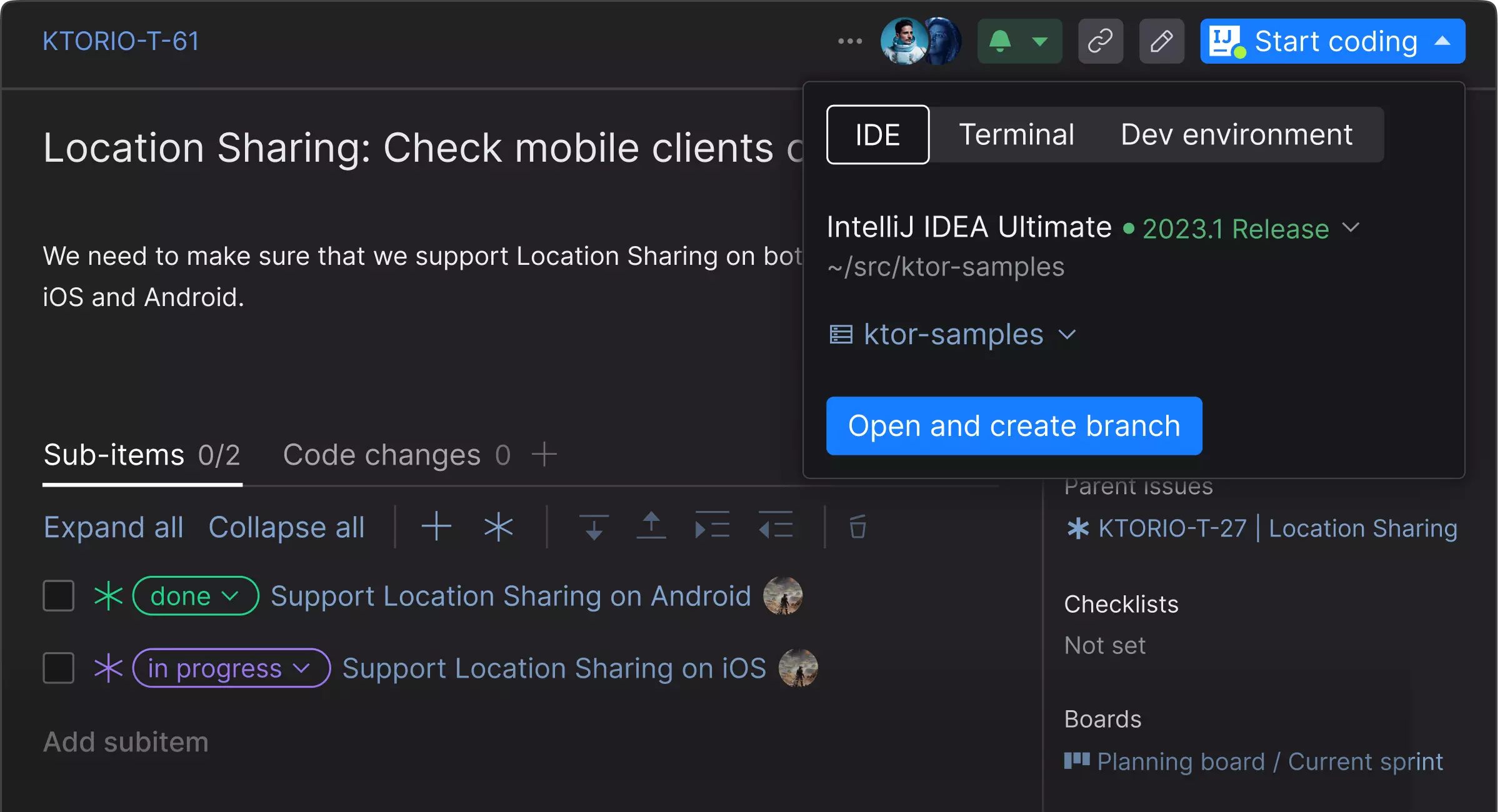
Integration with external issue trackers
As an extensible platform, Space should provide a comparable experience when working with both external issue trackers and Space issues, reducing friction and increasing transparency in your development process with Space’s issue flow approach.
We’re actively working on integration with Jira, which will let you:
- Link Jira issues to commits and merge requests in Space by mentioning them in a commit message.
- View linked Space commits and merge requests in Jira.
- Create Jira issues from Space chat messages and To-Do list items.
- Preview Jira issue links in Space сhats, documents, and more.
We’re also planning to introduce similar integration with YouTrack in the future to leverage the power of Space alongside your preferred issue trackers, ensuring a smooth and efficient workflow.
New Guest and Collaborator roles
We’re reshaping our approach to how you can collaborate with your customers and stakeholders in Space by introducing more customer inclusivity. We see high demand for a role that has limited access to project resources while still being able to create or comment on issues, review documents, and participate in chats.
To fulfill this demand, the new Guest user role will allow you to configure a limited set of permissions to cover the diverse needs of your external users while ensuring we can maintain a fair and transparent pricing structure within Space.
Users with the current Guest role will be transformed into Collaborators, granting them full access to all Space features within a selected project while also ensuring they still only have limited access to the members and data of your entire organization. Collaborators will be priced the same way as internal members.
Integration with TeamCity
We’re expanding the integration between Space and TeamCity to cover various use cases. This means that you’ll be able to integrate your existing CI/CD pipelines if you’re already using TeamCity or create them from scratch in Space if not. Upcoming improvements include simplified setup in TeamCity and the new commit status publisher.
Software Development and Collaboration
Git hosting and code reviews
Space’s Git Hosting and Code Review modules are essential components that support the code review workflows of modern software teams. With the Space Git flow, a continuous release-oriented branching strategy, Space provides tools to maintain code quality and a healthy main branch.
We’re now focused on further enhancing these modules to support more sophisticated scenarios, including the integration of Qodana with Space merge requests, the option to filter files by code owner, file reviews, Git subtree support, and more.
These enhancements are aimed at providing a more comprehensive and efficient code review experience in Space, enabling teams to maintain code quality, streamline collaboration, and optimize their development workflows.
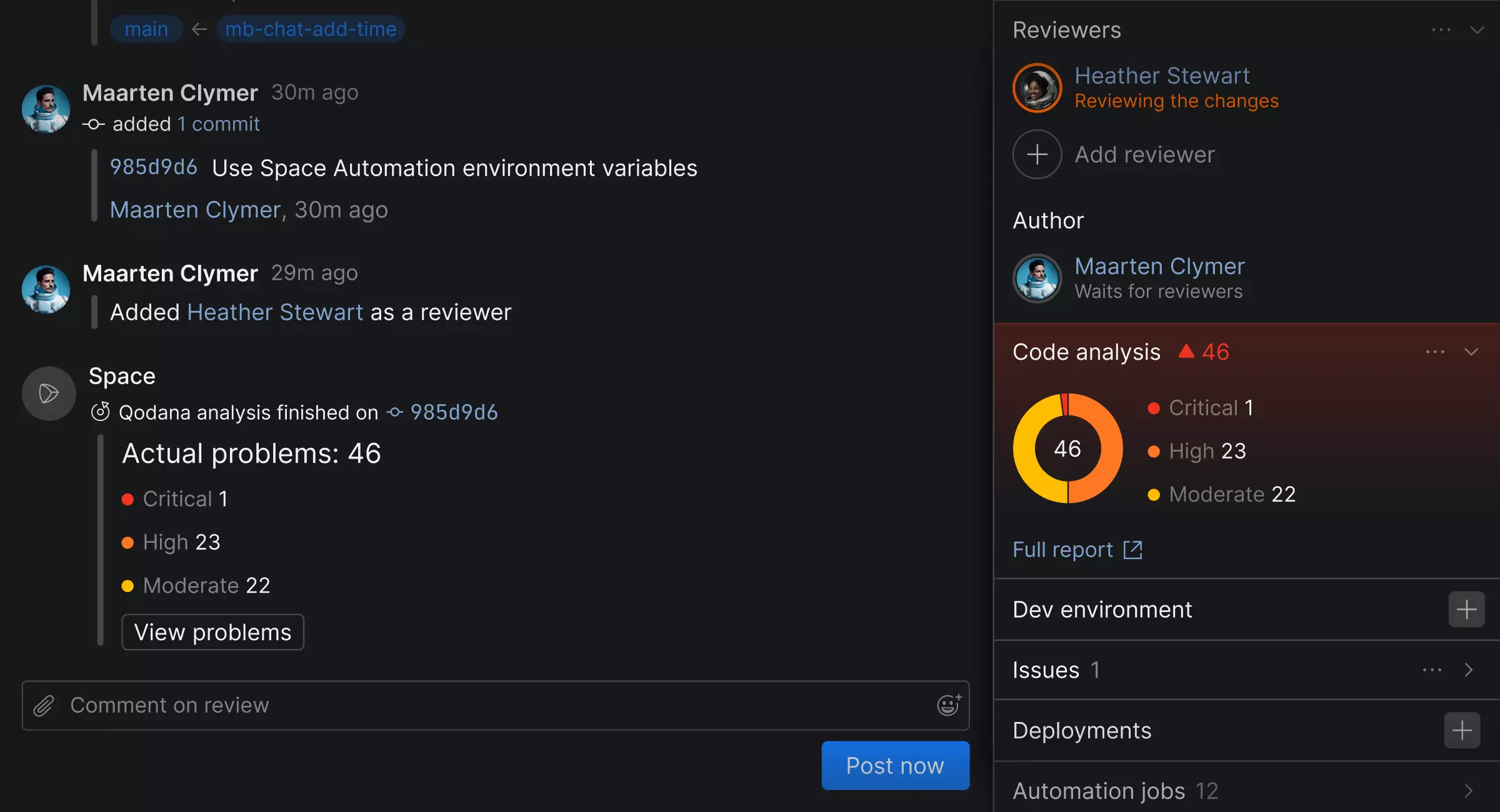
Automation & CI/CD
We have decided to concentrate on implementing support for TeamCity as a backend for Space Automation. This integration will enable Space users to access TeamCity Cloud’s fleet of Linux, Windows, and macOS agents. It will also lay the foundation for seamlessly incorporating unique smart features from TeamCity into the Space Automation platform.
But that’s not all, we’re also making the Automation service a real Space application that can be authorized in various contexts with fine-grained control. This will make jobs more versatile, adding the ability to send messages to specific private channels, push to specific git repositories, and much more.
Packages
With the upcoming enhancements, our aim is to streamline package management, improve search capabilities, and provide seamless integration with IDEs.
Issues
We’re working on improving issue lists, views, and boards to support the Space issue flow. By introducing features like a spreadsheet-style issue list, a unified issue view, and customizable issue field settings, we aim to provide a more efficient and tailored experience for tracking issues. Additionally, improvements to issue boards will enhance the visual representation and organization of tasks.
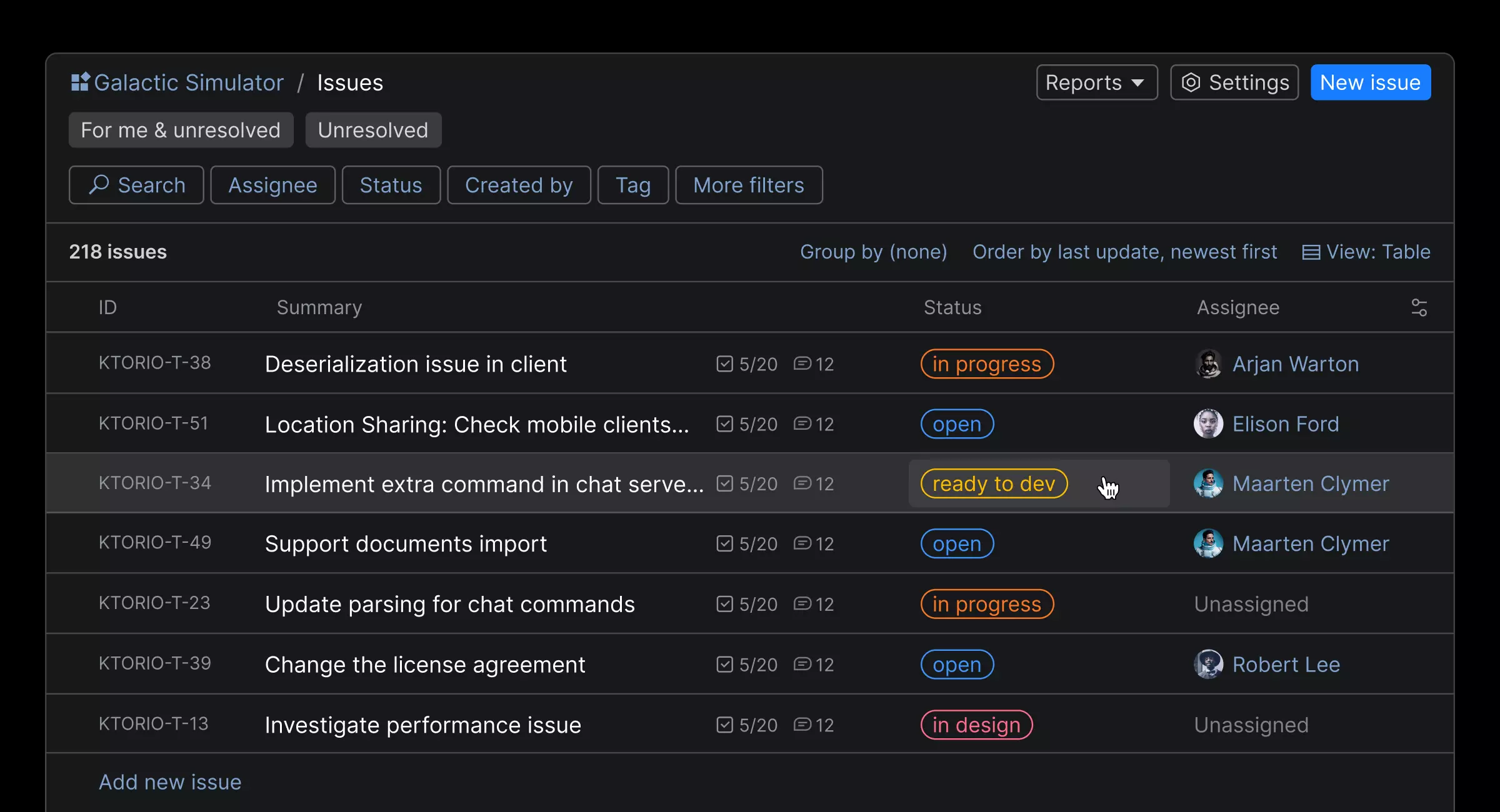
Documents
To enhance the transparency and accessibility of information in Space, we’re focusing on improving the Documents module. Our goal is to provide a unified text editor experience, regardless of whether you’re working with documents or issues. Additionally, we aim to enhance search and navigation within documents, the text editor, and information-sharing capabilities within projects.
Chats
We’re focusing on improving the integration of code reviews and issues with Space Chats, which serve as the central hub for notifications and instant communication.
Extensibility
Space is a customizable platform, and we are continuing to work towards improving its customization and integration with external tools. A synchronization API, customizable webhook payloads, HTTP API versioning, and various SDK improvements are all in the works.
Mobile apps
Our focus is on making sure all essential project features are supported, so we’ll be catching up with the web version on new code review features, polishing existing features, and improving the UI/UX of both the Android and iOS platforms.
On-Premises
We’re committed to empowering software teams of all sizes and levels of expertise. In Space On-Premises 2023.2, we’ve been focused on providing simplified installation options, making it easier for smaller teams with limited DevOps expertise to adopt Space.
These enhancements offer various installation options beyond Kubernetes, like the AWS public cloud or using Docker Compose for production, providing flexibility and catering to teams of different sizes and needs. Get your instance of Space On-Premises 2023.2 now.
We invite you to explore this detailed breakdown of everything we’ll be working on in Q3–Q4 2023 and keep track of your favorite features on our Roadmap page. The statuses are regularly updated to be in line with our releases.
Explore the Q3–Q4 2023 roadmap
Subscribe to Space Blog updates







